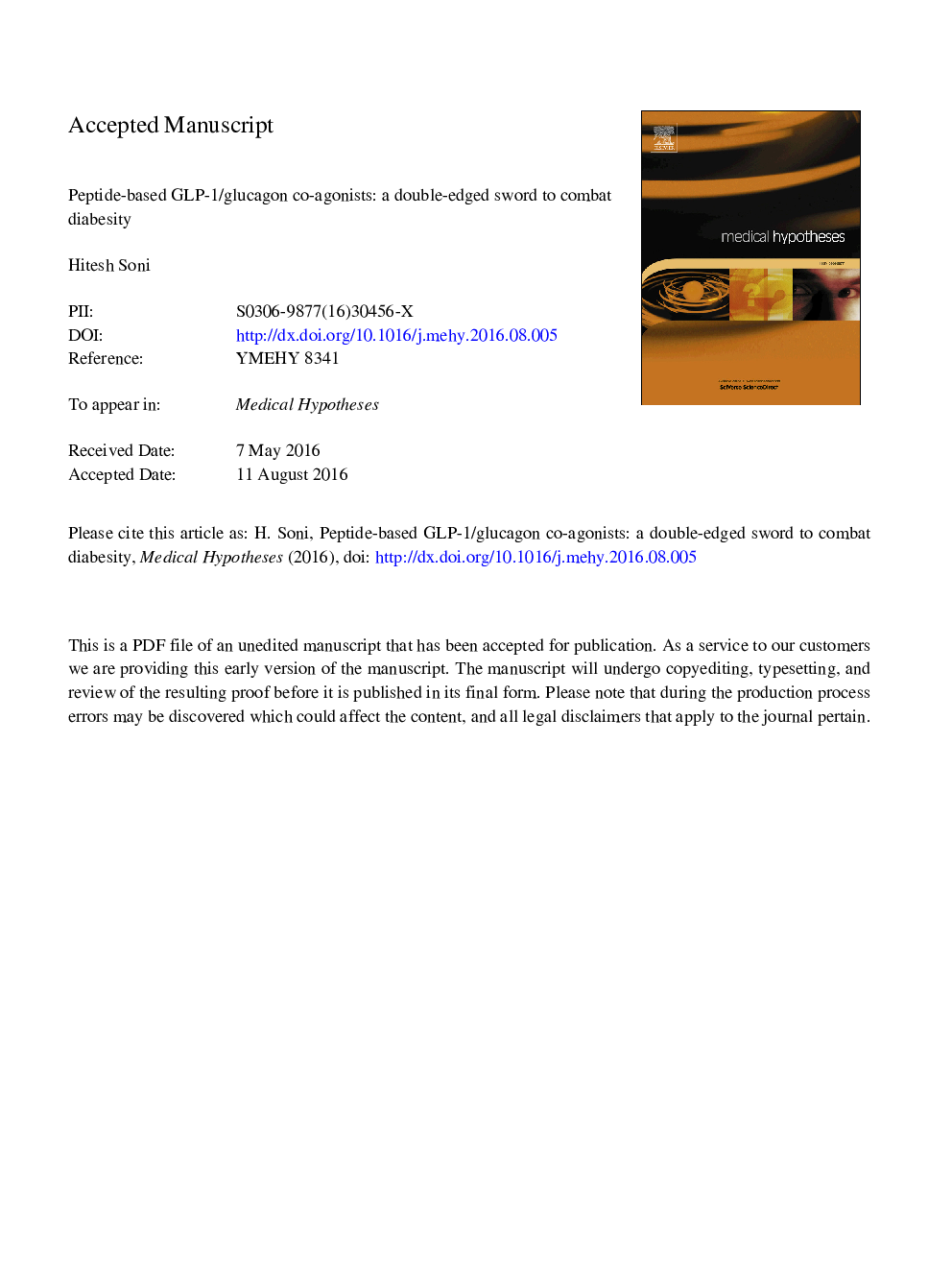| کد مقاله | کد نشریه | سال انتشار | مقاله انگلیسی | نسخه تمام متن |
|---|---|---|---|---|
| 5810346 | 1556550 | 2016 | 18 صفحه PDF | دانلود رایگان |
عنوان انگلیسی مقاله ISI
Peptide-based GLP-1/glucagon co-agonists: A double-edged sword to combat diabesity
دانلود مقاله + سفارش ترجمه
دانلود مقاله ISI انگلیسی
رایگان برای ایرانیان
کلمات کلیدی
موضوعات مرتبط
علوم زیستی و بیوفناوری
بیوشیمی، ژنتیک و زیست شناسی مولکولی
زیست شناسی تکاملی
پیش نمایش صفحه اول مقاله

چکیده انگلیسی
Diabesity is a new term for obesity-dependent diabetes, which is also associated with cardiovascular and other comorbidities with rising epidemic. Traditional treatments (sulfonylureas and thiazolidinediones) of diabetes are associated with weight gain, except metformin. Newer agents such as glucagon-like peptide-1 receptor agonists (GLP-1 RAs) and Sodium glucose co-transporter 2 inhibitors (SGLT2i) are causing a modest weight reduction, whereas dipeptidyl peptidase-4 inhibitors (DPP-4i) are weight neutral. Oxyntomodulin, a native GLP-1/glucagon receptor agonist produced a superior weight loss and antihyperglycemic effects in obese mice and humans. Recent findings with synthetic dual GLP-1/glucagon receptor agonists have shown a good weight loss and antihyperglycemic profile in diet-induced obese (DIO) mice. Targeting combinations of GLP-1 receptor and glucagon receptor simultaneously with a single peptide may be the better strategy to achieve marked weight loss and considerable glycemic control in diabesity. Cardiovascular safety is very important with new antidiabetic agents due to rosiglitazone controversy. Current on-going clinical trials will clarify the cardiovascular effects of incretin-based therapies in near future. Based on current knowledge and rapid progress in the field, there is a strong possibility that the GLP-1/glucagon receptor co-agonists will likely be the new therapeutic treatment for diabesity for decades to come.
ناشر
Database: Elsevier - ScienceDirect (ساینس دایرکت)
Journal: Medical Hypotheses - Volume 95, October 2016, Pages 5-9
Journal: Medical Hypotheses - Volume 95, October 2016, Pages 5-9
نویسندگان
Hitesh Soni,